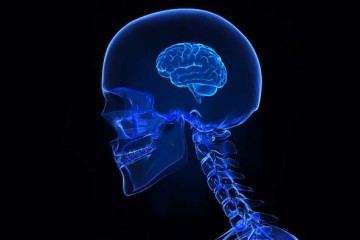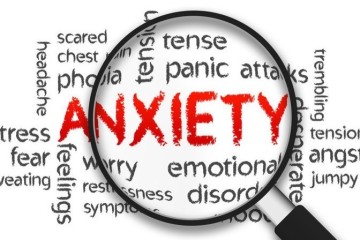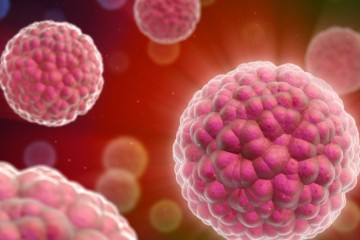Is Cannabidiol the answer to treating post-traumatic stress disorder?
Post-traumatic stress disorder (PTSD) is an anxiety disorder with debilitating symptoms, affecting approximately 6-7% of the world population at some point in their lives. Caused by exposure to extreme trauma, PTSD is characterised by altered neuro-cerebral function, and impaired stress response that easily switches to hyperarousal, causing introversion, along with recurrent, vivid flashbacks and nightmares.
Existing drug treatments for PTSD include, most commonly, antidepressants. However, adherence rates to these antidepressants vary, due to many experiencing side effects and having trouble adjusting to the drugs’ mechanism of action. Seemingly the obvious option, anxiolytic drugs, benzodiazepines, are rarely used, having not demonstrated a benefit in trials, as well as possibly worsening the dissociation felt by sufferers. Now, ironically, an extract from a drug of misuse, implicated in the worsening of PTSD, has been identified as a possible treatment. Already being used in the US in an infant-stage epilepsy drug, cannabidiol (CBD), a non-psychoactive compound found in cannabis, has been shown to possess antioxidant, antipsychotic, antidepressant, hypnotic and anxiolytic properties. This reads like the top of any PTSD patients’ shopping list, but it may be foolish for sufferers to turn to cannabis as the answer, as many of the other 80 something active cannabinoids found in cannabis actually exhibit properties contrary to that of CBD.
CBD itself has been isolated and investigated for over 70 years. The structure of CBD was first investigated in a paper from 1940 (R. Adams et al), when it was known to be an active agent in cannabis, with its exact mechanisms unknown. It was with a paper by S.Leowe, ‘The active principles of cannabis and the pharmacology of the cannabinols’ (1950), that the actions of CBD, and their potential uses, began to become clear. Leowe deduced that CBD possesses powerful hypnotic properties, without the associated central nervous system depression found with many hypnotic drugs. This is a finding supported to this day, and is of importance in the treatment of PTSD, due to sufferers experiencing persistent sleep disturbances and night terrors. In fact, Zolpidem, a hypnotic drug with a similar mechanism of action, is widely administered to PTSD patients. In a far more recent study, by Hsiao et al, (2012), CBD was confirmed as a potent sleep aid, and it was proposed that this suppression of REM-sleep alterations is actuated by its anxiolytic properties. This suggests that CBD, as an anxiolytic agent, may be better for PTSD sufferers than benzodiazepines, which have been shown to induce their own forms of sleep disturbances.It was in a study from 1972 by Agurell and Nilsson, that CBDs anxiolytic effects were brought to prominence, particularly via its actions as a 5-HT1a (serotonin) receptor agonist. As of 2014, these findings remain supported (R. de Mello Schier et al, 2014), with the same mechanism being touted as a powerful anti-depressant pathway.
Recent studies, looking specifically at the link between CBD and the treatment of PTSD (Campos et al, 2012; Campos, Ferreira, Guimaraes, 2012) consistently point towards the 5-HT1a receptor as the key. However, the main problem with all studies into CBD, is that the vast majority were not performed on humans. This is partly due to the non-specific nature of CBD, and it could be suggested that the stigma behind cannabinoids may also play a role. With regards to the use of cannabis as a source of CBD, many strains of industrial hemp have actually been shown to yield around 1% CBD, making this a legally viable source.
References-
Adams et al (1940) Structure of Cannabidiol, a Product Isolated from the Marihuana Extract of Minnesota Wild Hemp. I, Journal of the American Chemical Society, 62(1)
Agurell, S., Nilsson, J.L.G, (1972) - Pharmacokinetics and cannabinoid action using oral cannabis extract, calgarycmmc.com
Campos et al (2012) Multiple mechanisms involved in the large-spectrum therapeutic potential of cannabidiol in psychiatric disorders, Philosophical Transactions of the Royal Society, 367(1607)
Campos et al (2012) Cannabidiol blocks long-lasting behavioral consequences of predator threat stress: possible involvement of 5HT1A receptors, Journal of psychiatric research
Hsiao et al. (2012) Effect of cannabidiol on sleep disruption induced by the repeated combination tests consisting of open field and elevated plus-maze in rats, Neuropharmacology, 62(1)
Leowe, S. (1950) The active principles of cannabis and the pharmacology of the cannabinols, Archiv fur Experim. Pathologie und Pharmakologie
R. de Mello Schier et al, (2014) Antidepressant-Like and Anxiolytic-Like Effects of Cannabidiol: A Chemical Compound of Cannabis sativa, CNS & Neurological Disorders - Drug Targets, 13(6)



